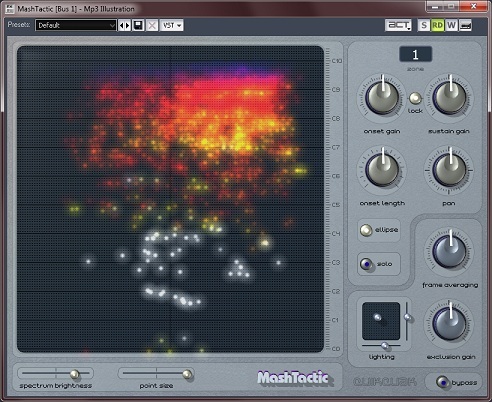Can lossy audio files such as mp3 or AAC be mastered?
By Rob Stewart - JustMastering.com - September 8, 2012
You absolutely can master any file format, but, I strongly recommend using uncompressed (e.g. *.wav, or *.aiff) or "lossless" compressed (e.g. FLAC) versions of your mix when working with a mastering engineer. This ensures that you will receive the highest quality finished masters possible.
Most compressed formats such as *.mp3 are "lossy", meaning that in order to reduce the file size, something ends up being removed from your music.
On one hand, most lossy compression formats are very intelligent. They only remove portions of the music that are the least likely to be noticed by the listener. On the other hand, the portions removed are usually tranient details and stereo field information. Even though they aren't always obvious to a human listener, removing them decreases the resolution of your mix.
Taking it a step further, if those transient and stereo components are removed prior to mastering, and then the music is re-compressed to another lossy format after the music mastering process is completed, more information is removed again, which can greatly affect sound quality.
Here's a real-world example to illustrate.
Below, are three audio samples that illustrate how converting to a lossy format can impact the sonic integrity of your music.
This first sample is an untreated, unmastered audio file. This is provided so that you can get a sense for the sound quality of the original file.
This second sample is a comparison file. I took the original file that was provided, and converted it to 192kHz *.mp3 format, aligned it perfectly in time with the original, and then flipped its polarity before combining it with the original file. What is left is anything that is different from the original audio file. Listen closely. It sounds like noise at first, but what you're hearing is transient detail from the drums, a hint of guitar and bass, and also a lot of stereo (ambient) information that was in the original mix. All of that detail is now either gone or changed to varying degrees, just by converting the file to 192kHz *.mp3. This is not a fault with mp3 compression. It is the nature of lossy compression where the encoder is attempting to remove pieces of the audio that won't be noticed by most listeners.
This third sample is also a comparison file. This time I took the *.mp3 file, and reconverted it to 192kHz *.mp3 a second time, simulating what would happen if we started with the original *.mp3 file as the original source for mastering and created an *.mp3 end product after the audio mastering process. As you can hear, this second audio sample is much louder, and that's because even more detail has been affected via the secondary conversion to *.mp3.
Here is an interesting view that will let you visualize what you're hearing in the samples above. Using
QuikQuak's "MashTactic" audio plugin to take a snapshot one of the louder portions of comparison file #2, you can see that the sonic detail that has been affected is fairly broad band (bass is towards the bottom of the view, and treble is towards the top), and it's also across the whole soundstage (spread relatively evenly left to right in the view). That's a lot of dynamic and stereo detail that is gone, or changed, forever if you choose to use a lossy format!
Having said all of this, lossy formats are still very useful for other purposes. They are very convenient for music consumers, for example. When you submit your songs for mastering though, the more you can preserve the integrity of your original mixes, the better the final masters will sound. For that reason, I always discourage my clients from sending me their mixes in *.mp3 or other lossy formats for mastering.

